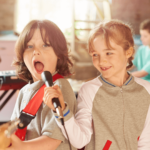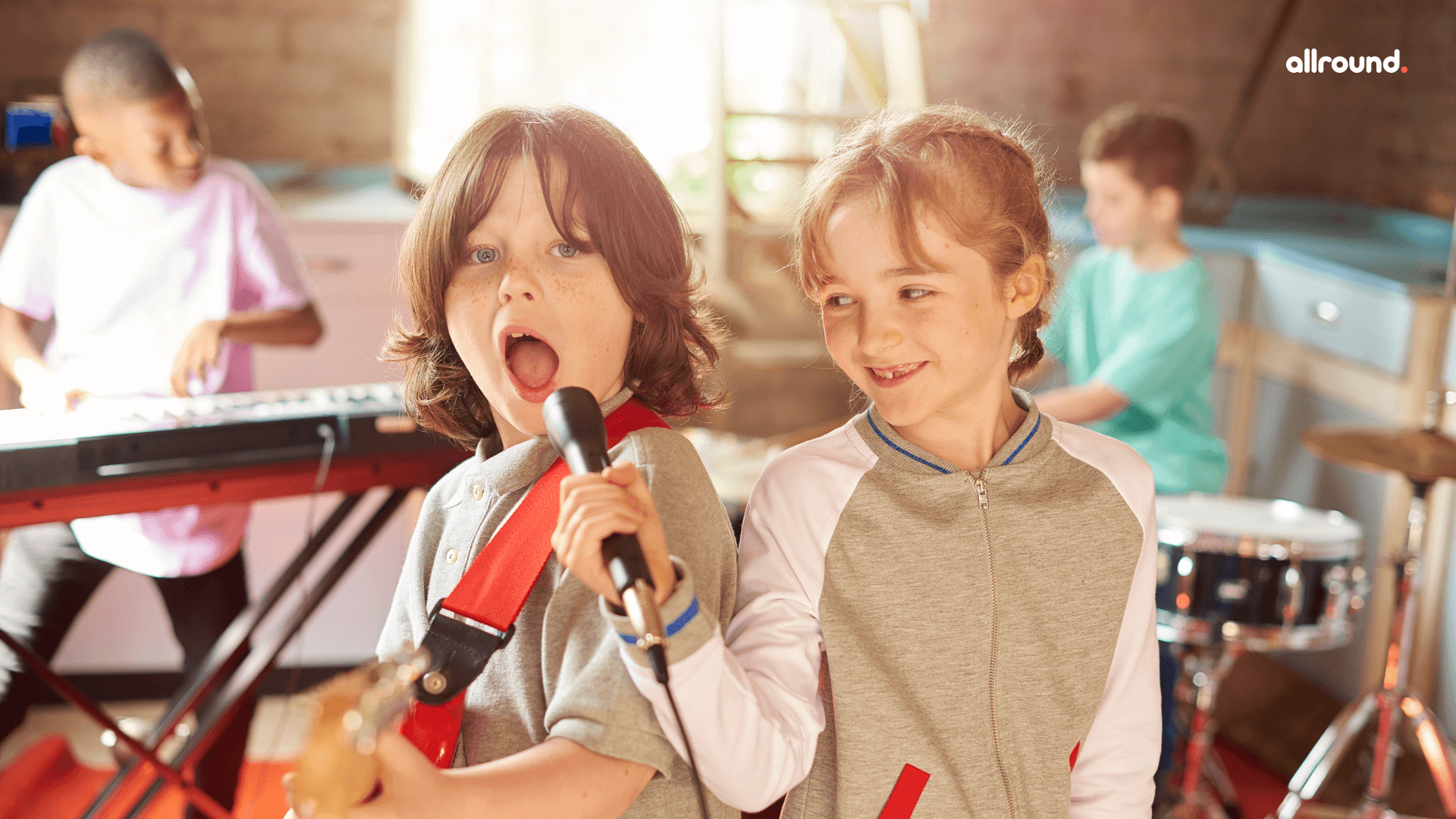Music Ties Social and Emotional Learning6 min read
There is no denying that education plays a crucial role in the development of every child. But every parent expects something extra from their children. We wish our children to excel in education as well as extracurricular. In addition, we also want them to be social people. But most parents do not think about how children can develop social and emotional learning. Do you know music can help your child grow social and emotional skills? Now you must consider how music can give our children social and emotional education? We know music is a language of emotions, and when your child learns music, they develop the power to be a good human. Overall, music stimulates social and emotional education in children and helps them expose themselves to more significant opportunities in life. If you are still not convinced, let us find out why music is the way to learn social and emotional skills.
Contents
What are Socio-Emotional Skills?
Firstly one must know the actual meaning of social and emotional skills. Social-emotional learning is developing self-control, interpersonal skills, and self-awareness in a child. These skills are required for a successful life and have a massive importance in every child’s life.
Children with strong social and emotional skills stand better than other children in everyday problems. These children can cope with daily life and perform better academically, socially, and professionally. Moreover, at the developmental stage social and emotional development of every child is very significant. Here are some of the benefits of social and emotional development:
- Better social and emotional skills help the children make social interactions by understanding things from many perspectives. Moreover, children become capable of expressing their ideas openly and unapologetically.
- These children gain better knowledge about the world as they can understand and solve every problem.
- Children develop better communication skills, and hence they can interact better with their peers and adults. Also, children can crack an interview and deal with different kinds of people owing to their excellent communication skills.
- Children who have better social and emotional skills can form positive relationships with people of different ages. In addition, these children can easily manage their emotions and behavior. Thus, they tend to become highly successful in life.
So these are some of the benefits of good social and emotional skills. Now you must be thinking about how music helps develop your child’s excellent social and emotional skills. Let us find it out.
How Music Ties Social and Emotional Learning?
Music helps stimulate the social and emotional growth of a child. Children can have fun while making music with the whole family, and it also supports social and emotional growth. So let us know how music can help in your child’s social and emotional development.
Self-Control and Self-Regulation
Singing is a simple task, but it has so many advantages. When you teach your child to sing and notice the notes and details of songs, they practice an essential skill, impulse control. Skills like impulse control are ignored in everyday life, and most parents do not heed them. However, when you sing with your child and ask them to repeat after you, they develop impulse-control skills. You can also use a song with which your child is familiar. Your child will definitely like this game and repeat it after you.
In this game, the child exercises self-control and self-regulation. For example, singing a song with the exact pitch and same notes helps children control their voice. In addition, you can also tell your child to dance to a song and stop when the music stops. Thus, this game will also stimulate self-control in your child. Moreover, music is a new language and an exciting way for your child to express their feelings. Thus, it would help if you encourage your child to take up music.
Self-Confidence and Leadership Skills
Ask your child to tell you about their favorite song, possibly one they learned at school or from their music classes. Just observe your child’s lead whether they receive the lyrics or melody “right” or not. This accessible task gives them the confidence to be a leader—and helps boost their self-confidence. Similarly, songs that ask kids to develop their phrases or sound also help self-confidence and management skills. Also, you can know what they are learning. This is how music education helps kids.
Social Skills and Socio-Emotional Intelligence
Whether making a track with simply you or the complete family, crew music-making challenges kids to work with others as a “team.” They research the significance of respecting others’ space and how they express their ideas. They also get to exercise collectively toward a frequent goal (e.g., when group dancing). Respect, collaboration, and working as a group are essential social abilities for your children to develop.
Empathy Development
Making tracks in a crew also challenges kids to watch the human beings around them for subtle clues to timing, volume, and expressiveness—the identical clues that we use to learn expressions and moods on people’s faces. Being capable of picking out and understanding people’s emotions is a foundation for empathy and ethical development.
Actively making a song with your child is an exciting and effortless way to aid your child’s socio-emotional learning, supporting them to increase self-regulation, self-confidence, management skills, social skills, and plenty more! So, the subsequent time you sing with your child, attempt some of the things we have advised here.
Why Do Children Need Music?
Music is an invisible art. Nobody can see it, nobody can touch it, but it occupies the heart of everyone. From a child to an adult, every person loves listening to music. Listening to music and making music are both loved by most people. Music is an art that ties intellectual and emotional skills together. When you provide your child with music education, they grow more. Children who get a music education can understand the feelings of others in a better way. In addition, these children develop better communication skills in their everyday lives.
When it comes to academic and personal achievements, most children lack. Only a few children can manage both educational and extracurricular activities together. For children learning music helps them to perform better in extracurricular activities. Not only do they grow socially and emotionally, but they also start to understand the behavior and feelings of others. Once your child develops a love for music, they will automatically develop skills like kindness and empathy. As we know, empathy is the most needed skill in our society. Therefore every parent must give music education to their children. Music education helps them to foster social and emotional learning.
Conclusion
This was all about music and social-emotional learning. The bottom line is that kids need music education to stimulate social, emotional, problem-solving, leadership, and many other skills. Therefore, as a parent, you have to encourage your child to engage with music. Music can help your child be more imaginative, and they will also have positive mental health. So start motivating your child to get a music education as it is the key to success in every field.





